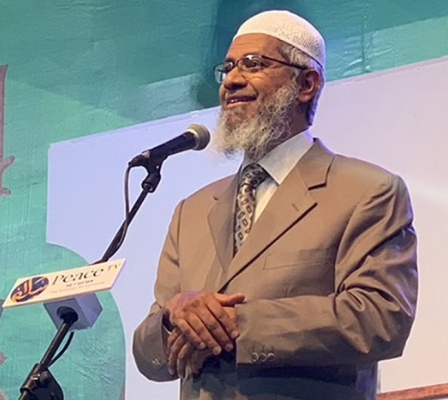Dr. Zakir Naik is an Indian Islamic preacher and public speaker, known for his lectures on Islam and comparative religion. Born on October 18, 1965, in Mumbai, India, he initially trained as a medical doctor before turning to religious studies and public speaking.
Career and Influence
Naik founded the Islamic Research Foundation (IRF) in 1991, which aims to promote a better understanding of Islam and engage in interfaith dialogue. He gained significant popularity through his public lectures, debates, and television programs, particularly "Peace TV," which broadcasts his talks to a global audience. He is known for his ability to reference various religious texts and scientific principles in his discussions.
Key Themes
His speeches often focus on topics such as the oneness of God, the importance of following Islamic teachings, and addressing misconceptions about Islam. He emphasizes the need for peace and harmony among different religious communities and encourages Muslims to adhere strictly to the tenets of Islam.
Controversies
Zakir Naik has been a controversial figure, facing criticism for his views on various issues, including terrorism and religious extremism. Some of his statements have drawn allegations of promoting radical interpretations of Islam. In 2016, he faced legal issues in India, with the government banning his organization and alleging that he incited communal discord.
Global Reach
Despite the controversies, Naik has maintained a substantial following, particularly among Muslim youth. His ability to articulate Islamic teachings in a modern context has resonated with many, and he continues to engage with audiences through lectures and online platforms.
Legacy
Zakir Naik's impact on Islamic discourse, particularly among young Muslims, remains significant. He is both celebrated as a scholar by his supporters and criticized by opponents, reflecting the complexities of contemporary religious dialogue.


